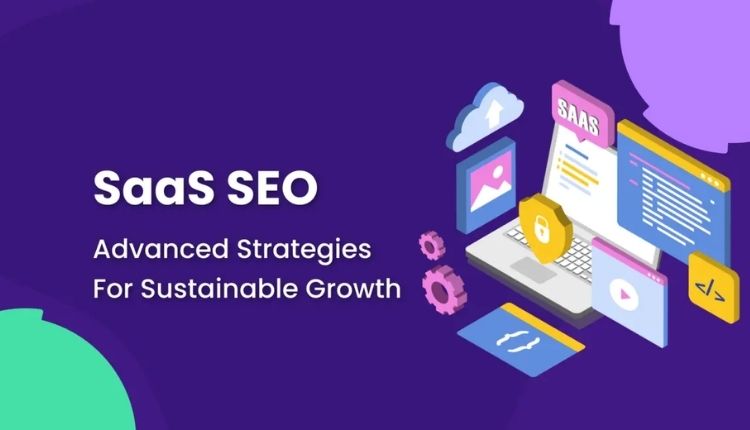Software-as-a-Service (SaaS) companies are turning to search engine optimization as their north star for sustainable, cost-effective growth. With growing competition and rising paid acquisition costs, inbound leads from organic search are now more mission-critical than ever for driving MRR and scaling operations. As organic search has become the top channel for SaaS brand discovery, the expertise of a SaaS SEO company, such as Victorious is invaluable for firms aiming to secure and maintain visibility in a rapidly evolving digital landscape.
Industry statistics highlight this priority shift: More than 70% of high-growth SaaS businesses list organic search as their best-performing channel. Brands seeking to outperform their peers closely follow updates from Search Engine Land’s recent coverage of Google’s 2024 algorithm changes, highlighting how crucial up-to-date SEO strategies have become.
As more SaaS companies adopt aggressive SEO, the bar for quality, technical health, and deep competitive research continues to rise. Aligning search strategy with business goals is essential—not just for traffic growth but also for sustained revenue and brand authority over time.
Investing in organic search also strengthens SaaS companies against volatility in advertising costs, data privacy changes, and fluctuating market trends, giving founders and marketers a long-term growth lever that compounds year after year.
Modern SEO Challenges for SaaS Businesses
SaaS brands face a unique mix of SEO challenges. Search engine results pages (SERPs) are shifting quickly, with Google’s algorithm updates and changing user behavior fueling massive keyword volatility. This means yesterday’s top-ranking content can slip off page one overnight, especially in high-competition verticals.
Fluctuating search intent is another major hurdle. B2B SaaS buyers often use ambiguous queries and expect solution-oriented results, making it critical for brands to reevaluate their content’s alignment with user needs continually. With the rising presence of feature snippets, competitor ads, and integrated AI-driven SERP features, gaining consistent organic traction requires persistent effort and nimble adaptation.
Technical SEO Foundations for SaaS
Technical excellence underpins every successful SaaS SEO strategy. Fast load times, clean site structures, and seamless mobile experiences are mandatory in today’s landscape, where Google’s Core Web Vitals can directly affect rankings and conversion rates. Ensuring your site is well-structured for users and crawlers reduces friction throughout the buying journey and increases the odds of ranking for high-intent, revenue-driving keywords.
Proper schema markup is now essential for enabling rich search results and enhancing click-through rates in crowded SERPs. The latest SEO predictions from Moz highlight adopting a mobile-first approach, optimizing internal linking, and maintaining impeccable crawlability, underscoring their continued importance for SaaS.
Content Strategies for User Acquisition
Content remains the backbone of SEO-driven growth, especially for SaaS. Advanced content strategies such as topic clusters and product-led content focus on building topical authority and nurturing top-of-funnel awareness and bottom-of-funnel conversion readiness. Thought leadership, in-depth guides, and detailed comparison content address all stages of the SaaS buyer’s journey.
Successful SaaS brands map core content topics to user personas, ensuring each touchpoint—from blog posts to product documentation—solves a real user problem and moves prospects closer to a conversion. Upskilling internal subject matter experts as content collaborators can foster trust and differentiate your brand in saturated markets.
Competitor Analysis and Opportunity Identification
Continuous competitor research is vital for agile SEO in the SaaS sector. Tools like Ahrefs, SEMrush, and Similarweb empower marketers to monitor rival activity, discover new ranking opportunities, and adapt quickly to changing SERPs. This intelligence enables informed decisions about keyword targets, backlink strategies, and emerging feature gaps.
Focusing on low-competition, high-value keywords gives smaller or newer SaaS brands a pathway to organic wins without directly confronting entrenched incumbents. Regular audits and SERP landscape reviews reveal shifting opportunities as user needs and market offerings evolve. Staying proactive, rather than reactive, ensures your SEO strategy remains future-proof.
Measuring SEO Success
Data-driven decision-making is non-negotiable for modern SaaS SEO. Key performance indicators such as organic traffic growth, keyword rankings, conversion rates, and demo sign-ups provide the foundation for tracking ROI. With increasingly complex buyer journeys, advanced attribution models help clarify how organic search supports user acquisition and revenue growth.
Modern analytics tools also enable SaaS brands to analyze deeper user engagement—such as time on site, assisted conversions, and customer lifetime value—offering a complete picture of SEO’s downstream impact.
Real-World Case Studies and Lessons Learned
Innovative SaaS companies drive remarkable results by aligning SEO deeply with their core business goals. For example, HubSpot achieved exponential organic traffic growth through an organized pillar-and-cluster content model, resulting in significant market share gains. Similarly, Notion’s focus on community-powered content and user education has sustained long-term, compounding visibility across competitive feature keywords.
Lessons from these projects underline the power of consistent technical audits, iterative content testing, and rapid response to Google’s continual algorithm shifts. Success hinges not on static playbooks, but on agile adaptation and a culture of ongoing learning.
Continuous Learning and Adaptation
SEO in SaaS is never “set and forget.” Algorithm updates, new user behaviors, and disruptive technologies demand ongoing education and flexibility. Marketers must stay informed on industry changes, tweak strategies in real time, and encourage cross-functional collaboration to ensure SEO performance keeps pace with business growth.
Subscribing to search industry publications and engaging with SaaS marketing communities fosters a learning mindset. This proactive approach protects rankings and uncovers untapped opportunities as the search landscape evolves. Resources such as Search Engine Journal can provide invaluable insights into emerging trends.
Conclusion
Sustainable SaaS SEO growth requires a blend of technical refinement, tactical content, and continuous competitive analysis. By embracing a holistic and adaptive approach, SaaS companies can future-proof their organic funnels, uncover untapped growth opportunities, and drive scalable, efficient user acquisition.
To stay ahead of the curve, invest in technical excellence, empower subject matter experts, and build a robust measurement framework. For brands committed to maximizing organic potential, working with an experienced SaaS SEO agency can make all the difference in navigating complexity and driving measurable results.






